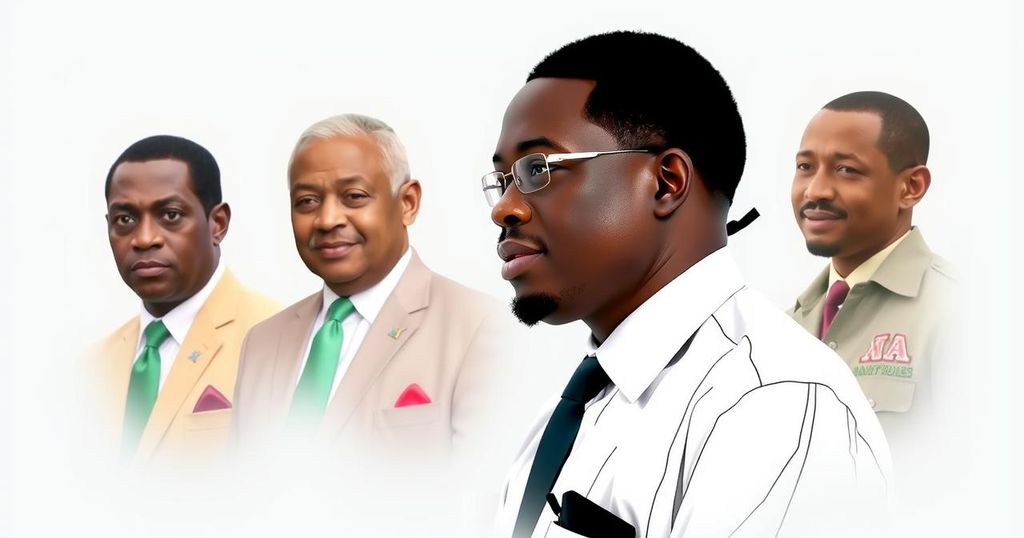Ghana is poised for a pivotal election where voters must choose between former president John Dramani Mahama and vice president Mahamudu Bawumia, amid an alarming economic crisis marked by rising inflation and unemployment. Young and first-time voters are especially galvanized over issues of governance and environmental degradation, with prospects for a significant voter turnout on the horizon. Polls suggest a competitive race, likely culminating in official results several days after Election Day.
On Saturday, Ghana will hold crucial elections amid widespread discontent over its struggling economy. Citizens face a choice between nominating former president John Dramani Mahama, who seeks a return after being ousted, or supporting his rival, Mahamudu Bawumia, the incumbent vice president. Both candidates represent the two dominant political factions in Ghana, as economic hardship, including heightened inflation and unemployment, continues to plague the population. Amongst voters, particularly the youth, there is a strong desire for a leader to remedy the nation’s financial distress and a growing commitment to environmental conservation amid protests against illegal mining.
The economy of Ghana, a major gold producer, has been severely impacted by excessive government borrowing, leading to a default on international loans and increasing poverty levels. With living conditions deteriorating, over 850,000 citizens have been driven into poverty since 2022, intensifying calls for change. Amidst this backdrop, young voters are mobilizing, with over 700,000 registering for the first time, many demanding accountability over environmental damage from mining practices.
Ghana’s political landscape is characterized by relative stability compared to its regional neighbors, who endure more significant turmoil. However, security concerns remain pertinent, given the potential for militants from surrounding conflicts to seek refuge in Ghana. Despite facing economic challenges, the country’s reputation as a secure democracy has garnered international attention, with notable visits from world leaders.
Polls indicate that Mr. Mahama is favored to win, but Mr. Bawumia represents a formidable contender. As the nation prepares for the voting process, the expectation is for a significant turnout, possibly surpassing previous elections. Results should begin to emerge on Election Day, with an official confirmation expected within two to three days after.
The upcoming presidential election in Ghana occurs against the backdrop of severe economic hardships affecting the nation. Since multiparty politics were reinstated in 1992, Ghana has oscillated between two major political parties: the New Patriotic Party (N.P.P.) and the National Democratic Congress (N.D.C.). The incumbent president, Nana Akufo-Addo, concludes his administration with heightened inflation and unemployment, prompting voters to weigh their options. John Dramani Mahama, former president, aims for a comeback against the current vice president, Mahamudu Bawumia, amid growing displeasure among citizens, especially youth, over governmental failures. Economic and environmental issues are at the forefront of voters’ minds as they approach the polls.
In summary, Ghana’s election will serve as a referendum on the country’s economic management as voters decide between two well-known political figures under the shadow of mounting economic challenges. The significant engagement of youth and first-time voters signals a potential shift in political dynamics. The outcomes of this election may have enduring implications for Ghana’s trajectory as it seeks to rebound from its current economic malaise and address critical environmental concerns.
Original Source: www.nytimes.com






